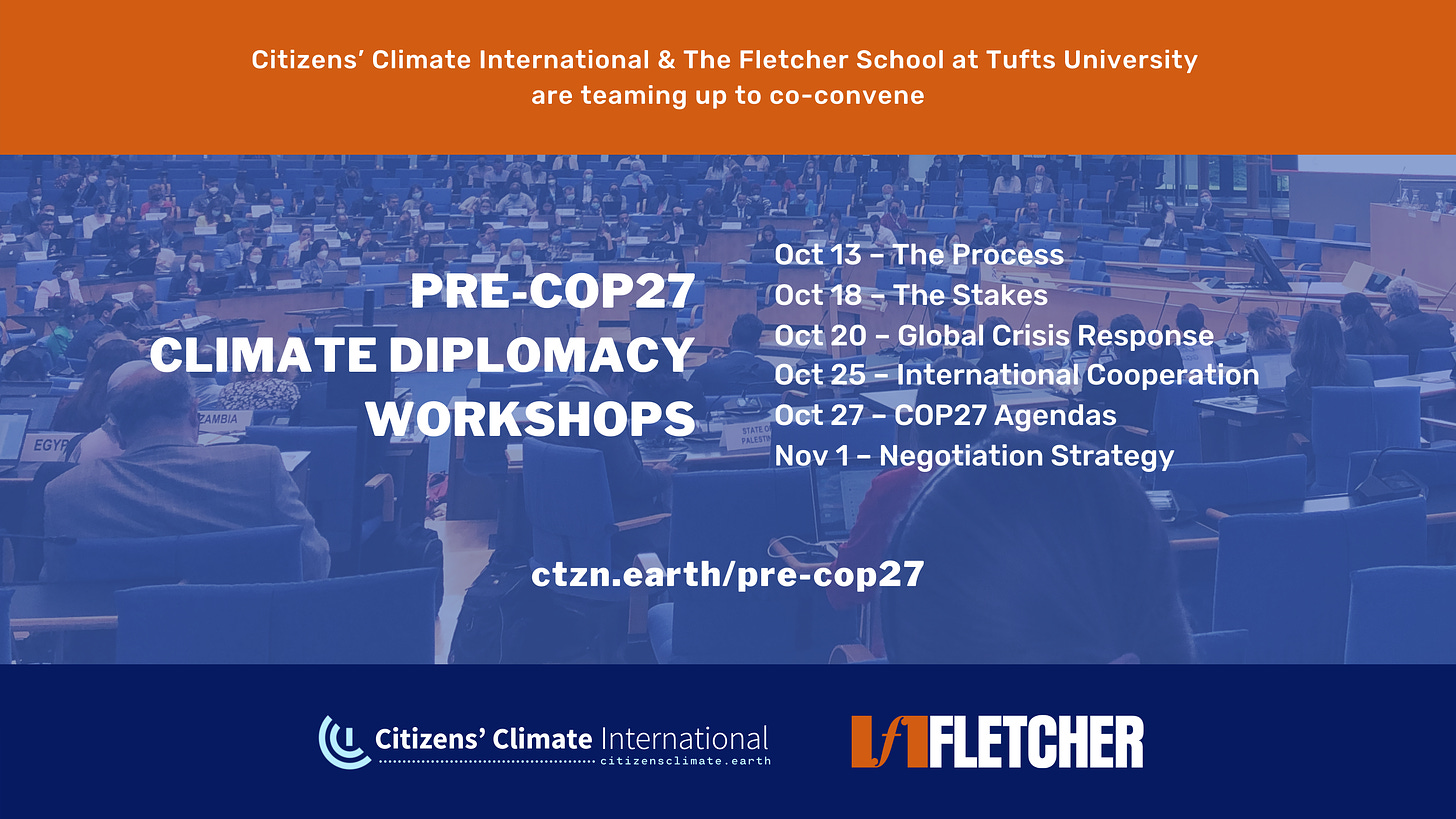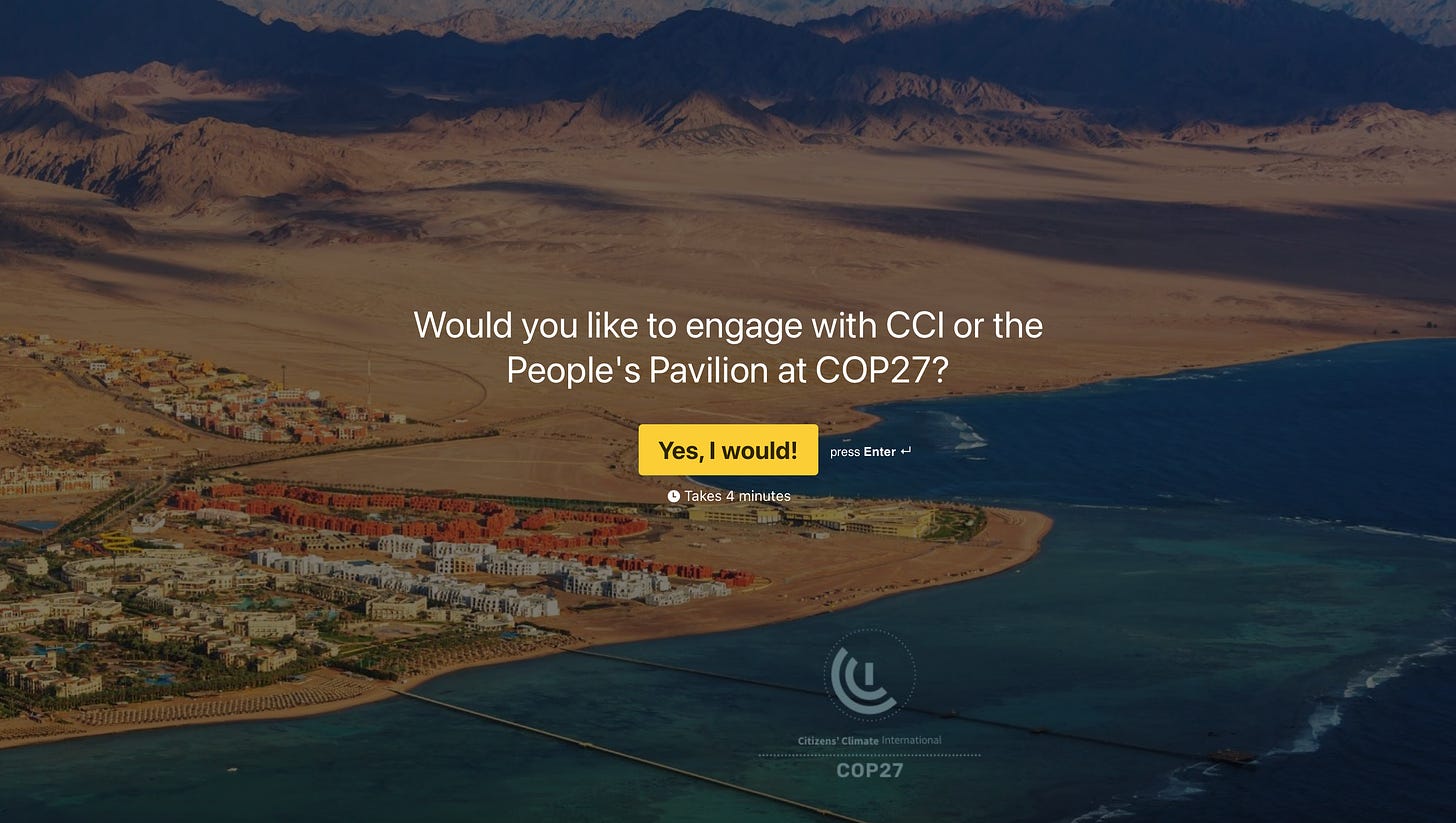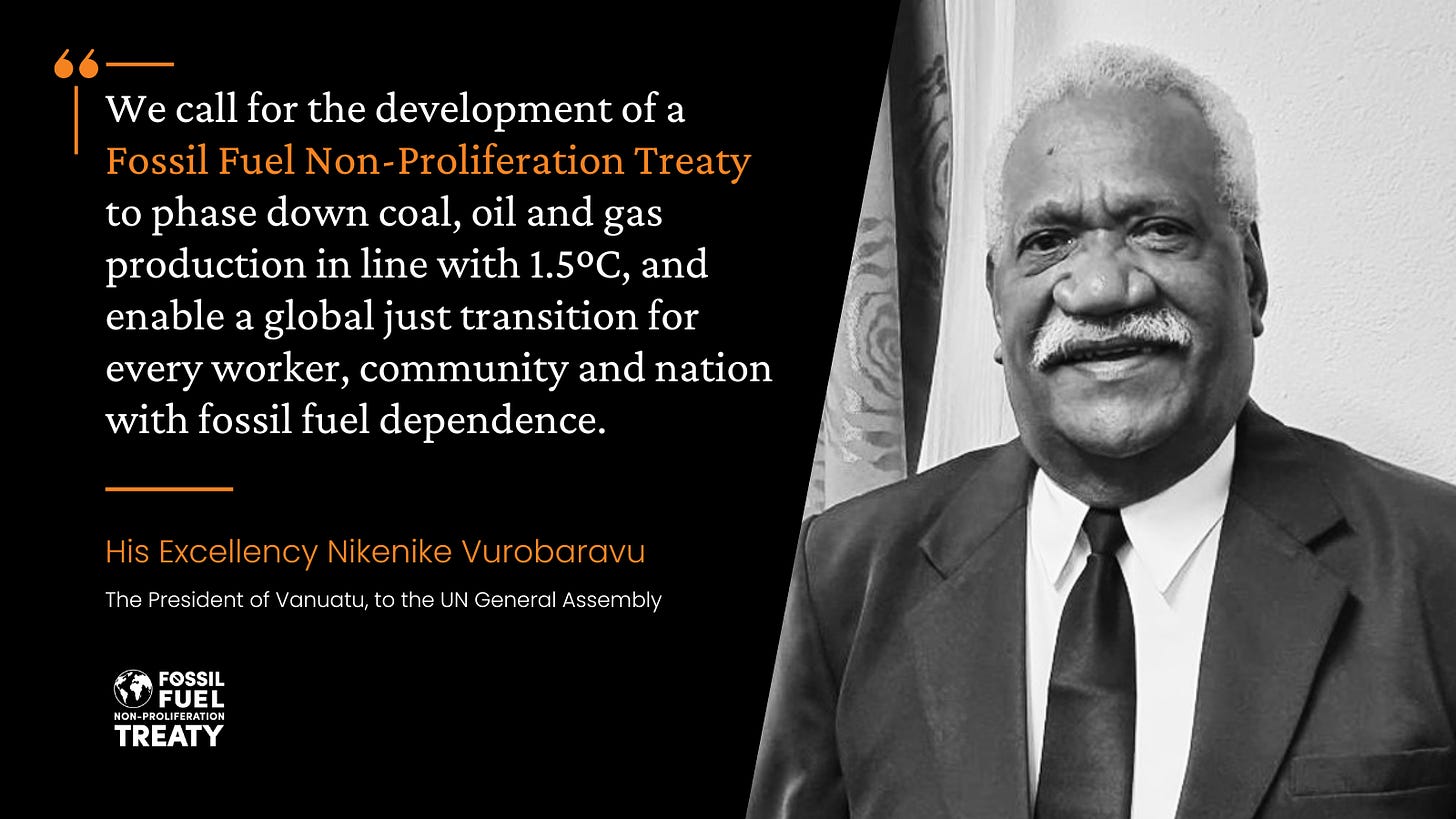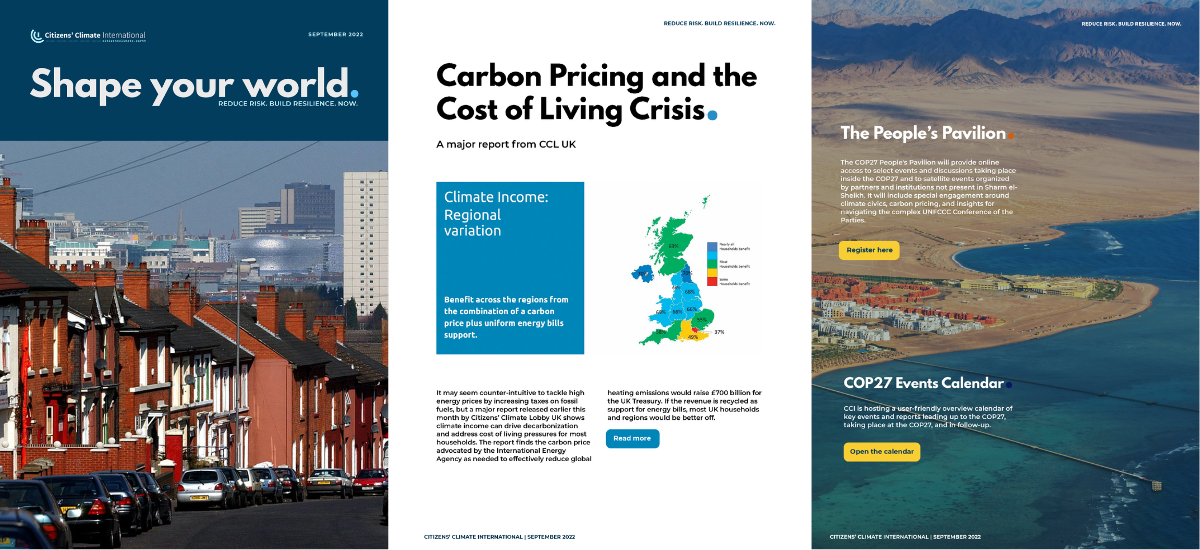Reduce risk. Build resilience. Now.
NEWSLETTER, September 2022—Pricing pollution in a cost-of-living crisis; PARIS Principles update; diplomacy workshops; COP27 planning; Non-Proliferation gains momentum; citizens track parties' views.
In the midst of a storm of converging crises, countries and communities around the world are bracing for increasingly extreme climate impacts. The UN estimates 1.2 billion people live in countries facing the “perfect storm” of simultaneous and compounding crises in food, energy, and finance systems. We cannot afford to ignore long-term climate and resilience imperatives. The right policy tools and climate-smart investments will reduce risk, build resilience, and leave us with a healthier economy in which more people prosper. We must act now.
Carbon Pricing & the Cost of Living Crisis
A major report from CCL UK
It may seem counter-intuitive to tackle high energy prices by increasing taxes on fossil fuels, but a major report released earlier this month by Citizens’ Climate Lobby UK shows climate income can drive decarbonization and address cost of living pressures for most households. The report finds the carbon price advocated by the International Energy Agency as needed to effectively reduce global heating emissions would raise £700 billion for the UK Treasury. If the revenue is recycled as support for energy bills, most UK households and regions would be better off.
COP27 Engagement
PARIS Principles to Accelerate Cooperative Climate Resilience
All areas of policy, investment, and practice, can play a role in reducing climate-related threats and increasing our chances of thriving in a climate-friendly way, and those that do should be rewarded for it. So, our new brief looks at non-market approaches in line with the PARIS Principles:
Price pollution – Public and private sector actors can act independently or in concert to impose both implicit and explicit carbon prices.
Add momentum – Climate income provides households and local economies with a way to propser through the transition.
Reduce emissions – Pollution pricing will shift incentives; other non-market cooperative approaches can amplify the benefits.
Internalize inefficiencies – Structural inefficiencies need to be transformed, through climate-smart and nature-positive investments.
Spread by aligning – Fairplay border adjustments can contain pollution; trade, finance, and debt policy can reward transition activities.
Climate Diplomacy Workshops
Citizens’ Climate International and The Fletcher School at Tufts University are teaming up to co-convene a series of Pre-COP27 Climate Diplomacy Workshops. Through six free virtual 90-minute sessions, participants will hear from experienced participants in the UNFCCC process, as well as from leaders in climate diplomacy scholarship, advocacy, and multidisciplinary study.
The People’s Pavilion
The COP27 People's Pavilion will provide online access to select events and discussions taking place inside the COP27 and to satellite events organized by partners and institutions not present in Sharm el-Sheikh. It will include special engagement around climate civics, carbon pricing, and insights for navigating the complex UNFCCC Conference of the Parties.
COP27 Events Calendar
CCI is hosting a user-friendly overview calendar of key events and reports leading up to the COP27, taking place at the COP27, and in follow-up.
Momentum building for a Fossil Fuel Non-Proliferation Treaty
CCI’s Francophone volunteers hosted our first ever French-language event, focusing on the need for a Fossil Fuel Non-Proliferation Treaty, to cooperatively phase down fossil fuels, globally. The event organizers noted:
“Depuis le lancement de la campagne il y a deux ans, le soutien des différents secteurs n’a cessé de croître, y compris sur le continent Africain, et on compte aujourd’hui : plus de 1 500 organisations de la société civile, 3 000 universitaires, 500 parlementaires, 65 villes et gouvernements infranationaux, Vanuatu, des milliers de jeunes militants, 101 lauréats du prix Nobel, un groupe croissant d’organisations et de dirigeants interconfessionnels, entre autres.”
This month, the World Health Organization joined hundreds of other health-focused agencies, organizations, and professionals in calling for adoption of a Fossil Fuel Non-Proliferation Treaty—to reduce premature death from cardiovascular disease, respiratory conditions, and cancers, and to reduce transmission of food and water-borne diseases and vector-borne diseases, among other negative health impacts caused by climate disruption.
At the United Nations General Assembly in New York, Vanuatu’s President Nikenike Vurobaravu became the first head of state to call for adoption of a Fossil Fuel Non-Proliferation Treaty, saying:
“Every day we are experiencing more debilitating consequences of the climate crisis. Fundamental human rights are being violated, and we are measuring climate change not in degrees of Celsius or tons of carbon, but in human lives. This emergency is of our own making…”
President Vurobaravu’s call to the General Assembly sets the stage for formal discussions around the specific design and process for securing the treaty.
More Volunteer News
CCL volunteers in Montreal compare candidates’ views on pollution pricing
Les élections québécoises auront lieu le 3 octobre. Les bénévoles du Lobby des citoyens pour le climat de Montréal ont préparé une brochure comparant les positions des partis sur l'action climatique et la tarification de la pollution.
Sign up for October informational call
At last year’s UN Climate Change negotiations in Glasgow, the 1.5ºC aspiration was cemented as the global mandate, and many tracks to a livable future were laid down.
What needs to be done next? We need to follow the money.
What does that mean? Redirecting financial flows away from fossil fuels and towards a livable future…
What does that mean? Join our monthly educational call to find out more.
A resilient and equitable world is possible. Together, with positive, focused, practical, and truthful messaging, we can make this happen.









